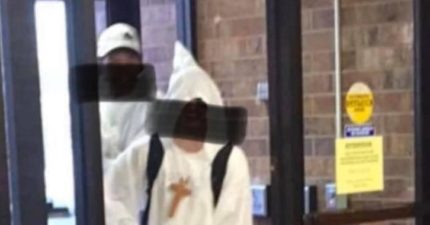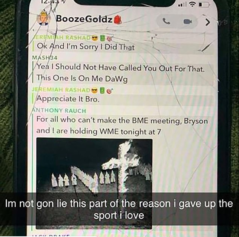How did the Ku Klux Klan play an indirect role in financing the early popularity of some legendary black jazz musicians? Money from the racist group helped keep an independent record company in business in the 1920s that played a role in the growth of jazz music.
Klan members in the 1920s.
The Gennett record label was a big independent record company in the early Jazz Age. Owned by the Starr Piano Company of Richmond, Indiana, Gennett would record anyone, including early black jazz, country, and blues musicians.
It was Gennett’s success in promoting the kind of music made popular by the likes of Louis Armstrong, Jelly Roll Morton, and Bix Beiderbecke that helped keep its record sales going strong.
All three artists, along with compatriots like the New Orleans Rhythm Kings, Hoagy Carmichael, and dozens of little-remembered acts, recorded for Gennett, a company kept afloat by Klan money.
The New York–based Okeh records was its only major national competition in the business of what was called Race Records until later in the decade, when national records companies Victor and Columbia got into the business of selling music to black audiences.
While Okeh marketed its recording of black artists in urban areas, Gennett dominated the Midwest and also had a studio in New York.
However, Gennett, based in southern Indiana, had a lucrative side business making “private” records. Anyone who had the cash could pay for a private session and have records pressed for their needs.
And the Klan was a big customer, often getting thousands of records cut at Gennett for its own membership.
In one scenario, Armstrong made his first record ever, as part of King Oliver’s Creole Jazz Band at the Gennett studios in 1923. A few weeks later, a Klan orchestra was in the same studio using the same Gennett engineer.
Likewise, Jelly Roll Morton’s hits for Gennett, including “King Porter Stomp” and “Wolverine Blues,” were made at the same time the Klan was recording in Indiana.
And perhaps unknown to the Klan, Morton (who was Creole from New Orleans) was recording with the all-white New Orleans Rhythm Kings at Gennett.
In the 1920s, the Klan had a huge membership in Indiana. It was the second incarnation of the group, which found a new life after the release of D.W. Griffith’s Birth of a Nation.
Read more: Scott Bomboy, Yahoo


